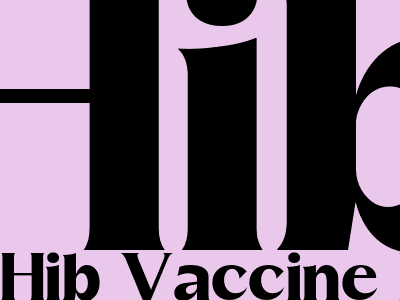Hib Vaccine: A Comprehensive Overview
What is Hib Vaccine?
Hib vaccine, short for Haemophilus influenzae type b vaccine, is a vital immunization that protects against Hib disease, a severe bacterial infection caused by Haemophilus influenzae type b (Hib) bacteria.
Importance of Hib Vaccine
Hib disease was once a leading cause of meningitis and other serious infections in children under the age of five. However, Hib vaccination programs have dramatically reduced the incidence of this disease, making it a rare occurrence.
Hib Vaccine Types and Schedule
There are two main types of Hib vaccines available:
- Conjugate vaccines: These vaccines are most commonly used and highly effective in preventing Hib disease. They are given in a series of three or four doses, typically starting at 2 months of age.
- Polysaccharide vaccines: These vaccines are less commonly used and provide shorter-lasting protection. They are typically given in a single dose to older children or adults who may have missed the conjugate vaccine series.
Recommended Vaccination Schedule
According to the Centers for Disease Control and Prevention (CDC), the recommended Hib vaccination schedule for children is as follows:
- First dose: 2 months of age
- Second dose: 4 months of age
- Third dose: 6 months of age (if using a conjugate vaccine)
- Fourth dose: 12-15 months of age (if using a conjugate vaccine)
Benefits of Hib Vaccination
Hib vaccination is highly effective in preventing Hib disease, with an efficacy rate of over 95%. It not only protects individual children but also contributes to "herd immunity," reducing the spread of the bacteria in the community.
Reduced Risk of Serious Infections
Hib vaccination drastically reduces the risk of developing Hib disease, including meningitis, pneumonia, and sepsis.
Prevention of Long-Term Complications
Hib disease can lead to serious long-term complications, such as hearing loss, developmental delays, and intellectual disability. Hib vaccination helps prevent these complications by protecting children from the infection.
Safety and Side Effects of Hib Vaccine
Hib vaccines are generally safe and well-tolerated. Common side effects include:
- Pain, redness, or swelling at the injection site
- Fever
- Irritability
These side effects usually resolve within a few days.
Rare Side Effects
Very rare cases of serious side effects, such as allergic reactions or seizures, have been reported after Hib vaccination. However, these events are extremely unlikely.
Who Should Not Get Hib Vaccine?
Hib vaccine is not recommended for individuals who:
- Have had a severe allergic reaction to a previous dose of Hib vaccine
- Have a weakened immune system
Pregnant and Breastfeeding Women
Hib vaccine is generally safe for pregnant and breastfeeding women, but it is recommended to consult with a healthcare provider before receiving the vaccine.
Conclusion
Hib vaccination is a highly effective and safe vaccine that protects children from Hib disease and its serious complications. By following the recommended vaccination schedule, parents can help ensure that their children are protected from this potentially life-threatening infection.

Komentar